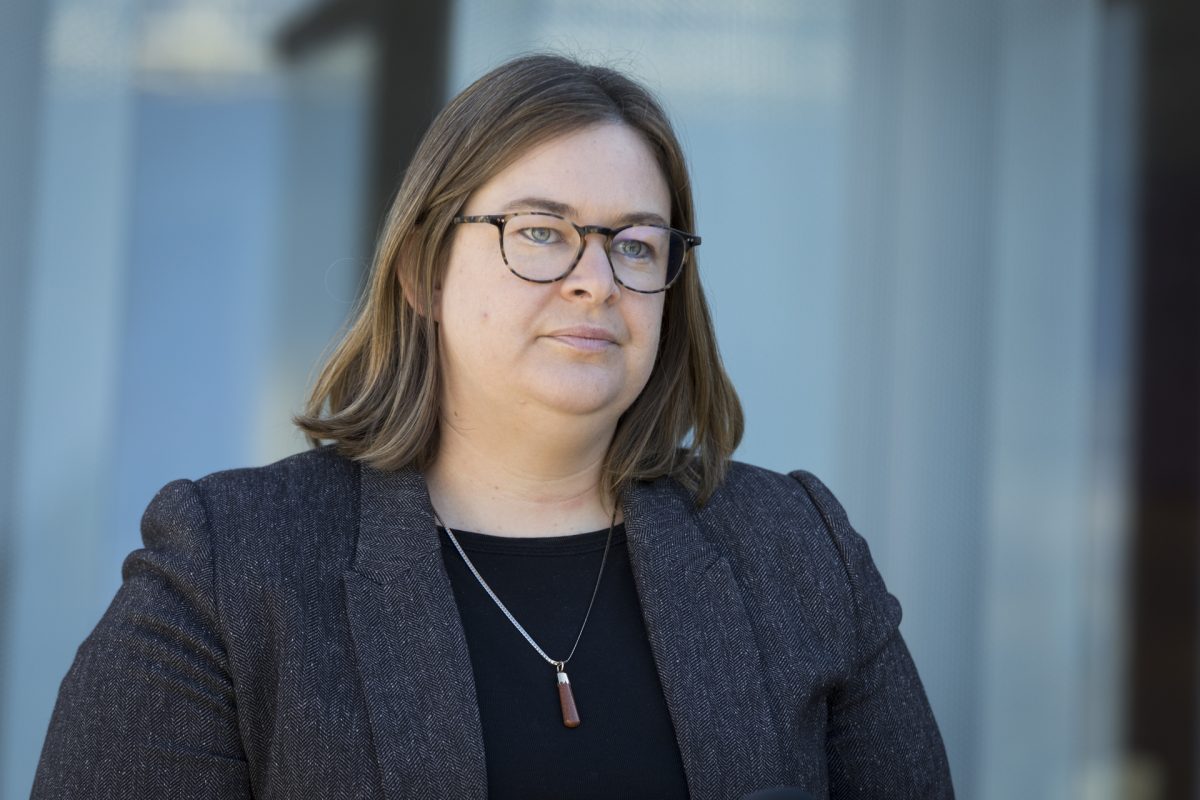
Elizabeth Hay was diagnosed with an autoimmune disorder named psoriatic arthritis 18 months ago. Photo: File.
Some days, 42-year-old ACT public servant Elizabeth Hay is physically unable to bend down and pick up a bit of rubbish she’s dropped on the floor.
On other days, it can take her two hours to get out of bed.
Not because she doesn’t want to – or she’s “lazy” – but because her body physically can’t manage it.
Ms Hay was diagnosed with an autoimmune disorder named psoriatic arthritis 18 months ago.
“My body basically attacks itself and creates inflammation,” she said.
Before her diagnosis, she spent a long time thinking her symptoms were injuries related to the softball she played.
She’d return to the physio over and over again where she’d receive a diagnosis of tendinopathy.
But a conversation with a physio one day where Ms Hay revealed she was unable to go for a walk without being in pain changed that.
“I told them I couldn’t walk without feeling like I was going through gel all the time – like I couldn’t propel myself,” she recollects.
That led to her being sent to a doctor for blood tests. After they came back showing raised inflammation markers, she was advised to find a rheumatologist.
It’s estimated that about five per cent of the country’s population has one of these conditions, but little is still known about them.
That’s one of the reasons Ms Hay – and others – face long waits for specialists and have to go through lots of trial and error to find medication that helps them.
But she acknowledges that, unlike others, she was lucky – she was taken seriously and believed when she sought medical help.
Not everyone receives the same response.
A lack of research means Ms Hay normally turns to Facebook groups where she asks for help with symptoms she might be experiencing.
“You do have to do a bit of your own trial and error here to find the ones which are supportive and don’t just catastrophise and make you feel worse,” she said.
“It’s like checking Doctor Google – you will always end up with cancer.”
Arthritis ACT had provided her with valuable support, she said.
The other risk Ms Hay faces, particularly in the current environment, is that she’s immunocompromised due to the medication she takes.
That means catching COVID-19 could leave her seriously ill.
Her employer is supportive and she works from home.
The mental toll has also been immense. It was hard to accept your body is just doing this, Ms Hay said.
“Because the fatigue is such a big part of it … I see other people doing things and all I can think is that I can’t do that,” she explained.
“Reminding myself that I’m not just lazy is a huge part of it for me.”
Likewise, it can be difficult to explain herself and her symptoms to those around her.

Autoimmune disorders are a deeply personal topic to Labor backbencher Suzanne Orr, who was diagnosed with one in 2010. Photo: Michelle Kroll.
Autoimmune disorders are a deeply personal topic for Labor backbencher Suzanne Orr, who was diagnosed with the rare condition immune thrombocytopenia in 2010.
When she looks back now, Ms Orr describes that moment as “life-changing”.
Before that, she thought her symptoms were pointing to a cancer diagnosis.
It was that diagnosis, in some part, that prompted Ms Orr to bring a motion to the ACT Legislative Assembly this week (29 November) calling on the Government to consider what options it had at its disposal to raise awareness of autoimmune disorders in the community.
Ms Hay said bringing the topic out of the darkness and into the light could help.
“So many people just don’t talk about their diagnosis … some more information and some more support could really help,” she told Region.
Ms Orr’s motion, which was moved by Labor backbencher Dr Marisa Paterson on her behalf, passed the Assembly with tripartisan support.












